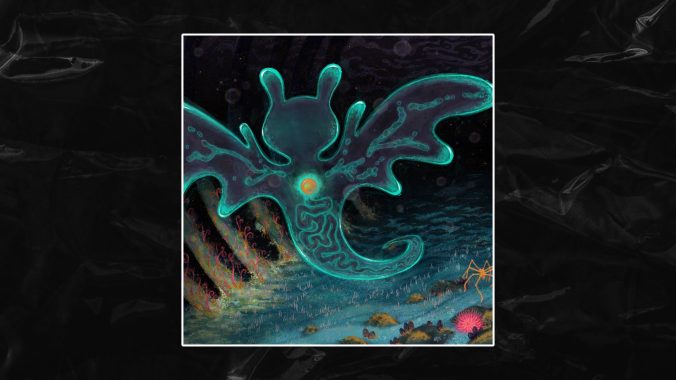glass beach Deliver on plastic death
The Los Angeles crew’s dalliances into math rock, jazz fusion, emo and hardcore never feel self-indulgent. Miraculously, it all works.

glass beach pack a discography’s worth of ideas into a single song. Ringleader J. McClendon mines prog rock, emo, jazz fusion and hardcore punk as touchstones, infusing them with a frenetic sense of turmoil that’s at times inscrutable but nevertheless affecting. Their penchant for waxing philosophical over labyrinthine arrangements has been a staple of glass beach since their 2019 debut, the wonderfully titled the first glass beach album. The end result is like wandering an amusement park with every possible theme blending into another: medieval into carnivalesque, cartoonish into futuristic, horrific into beachy. Yet, it somehow all works.
This is the feat that the Los Angeles band pulls off on their second album, plastic death. On paper, it may seem like an unfocused mess, but they execute everything with stylistic flair. Take lead single “the CIA,” which shifts from math rock noodling, to prog rhythms and, finally, to a hardcore breakdown. There’s also “200,” which starts off as a piano ballad before embracing jazz, power-pop and heart-on-sleeve emo mere moments later. McClendon’s uncanny ability to blend so many starkly disparate styles this smoothly speaks to their talents as an artist.
Sonic details aside, glass beach’s non-musical influences are equally wide-ranging. James Joyce’s novel Finnegans Wake, Jenny Holzer’s textual art series Truisms and seminal Dadaist figurehead Tristan Tzara all play central roles on plastic death, and McClendon’s lyrics are often rife with allusions to cultural ephemera and cryptic musings. On “rare animal,” they namecheck D.B. Cooper and the hijacked Northwest Orient flight from 1971. Opening track “coelacanth” references the unattributed Whig treatise Vox Populi, Vox Dei. These are noticeably headier references than, say, Yoshi’s Island, but glass beach keep matters from getting overly academic by making each moment absurdly fun.
-

-

-

-

-

-

-

-

-

-

-

-

-

-

-

-

-

-

-

-

-

-

-

-

-

-

-

-

-

-

-

-

-

-

-

-

-

-

-

-








































